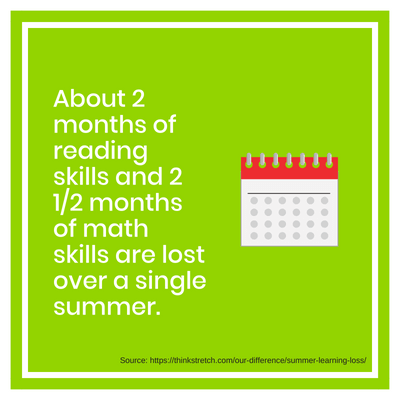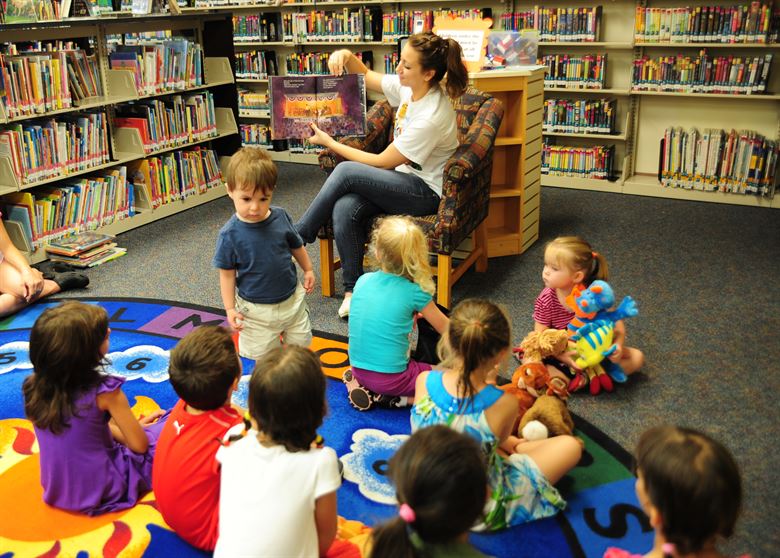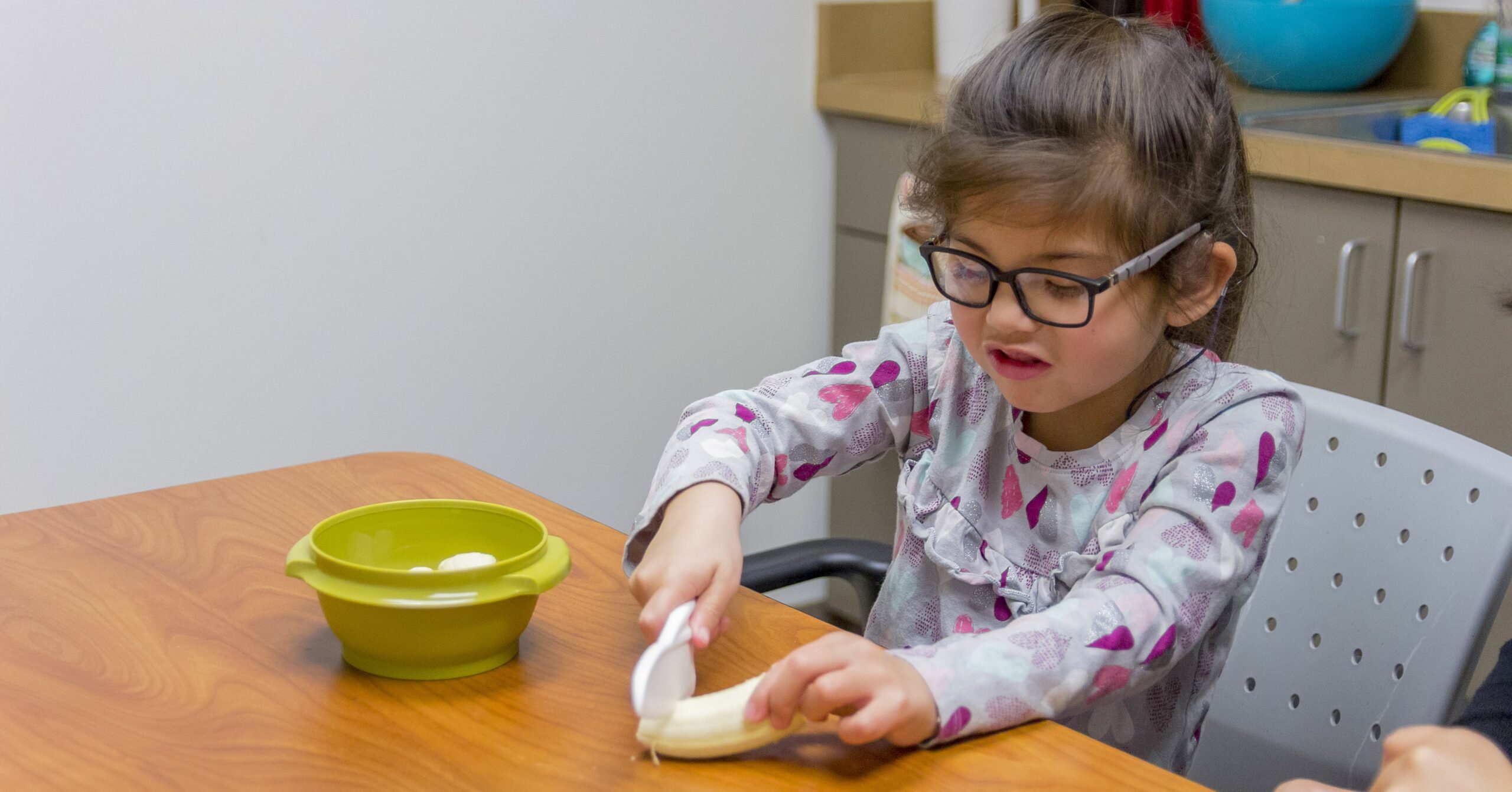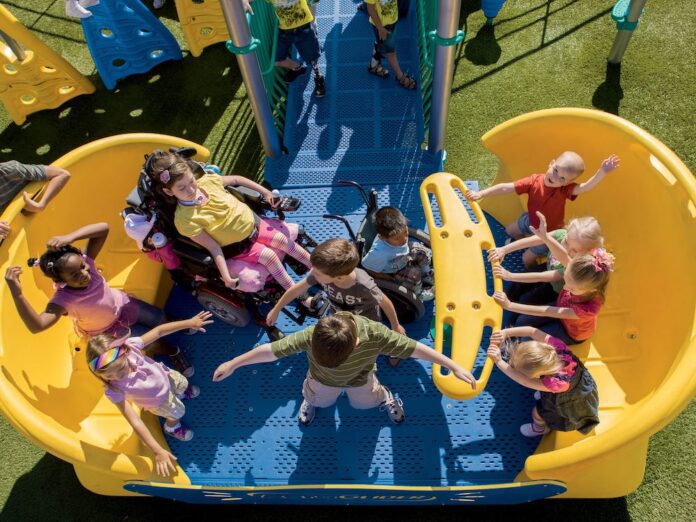School is out for summer. Woohoo ─ that means no more homework or structured learning for months to come! But wait… maybe we shouldn’t celebrate this learning halt because studies show this lengthy pause comes with unfortunate consequences. Research proves that all children can experience an achievement set-back thanks to a lack of routine and educational stimulation during summer, often referred to as the “summer slide.” And compared to their non-disabled peers, children with special needs are at an even greater risk of losing academic skills, in addition to compromising social and behavioral gains during this time frame.
The Slippery Slope of the Summer Slide
The demands of school are real and, for some, summer provides a welcome break to alleviate burnout, aka “school overload,” and foster an attention reboot. However, for most others, much of what is learned during the school year can slide right down the drain without ongoing reinforcement. According to the U.S Department of Education, on average, children regress by at least 25 percent in reading skills each summer. And it doesn’t stop there. Experts believe summer reading loss is cumulative; meaning children may not catch up once class resumes in the fall. So by the end of sixth grade, children who lose reading skills during the summer can be about two years behind their peers. Yikes!
This significant learning gap certainly impacts curriculum. According to the National Summer Learning Association, 9-in-10 teachers say they spend at least three weeks re-teaching lessons at the start of a new school year in an attempt to get kids back on track. And this effort comes at a lofty price — literally. There are estimates that re-teaching forgotten material following summer costs more than $1,500 per student each year, or more than $18,000 over the course of a K–12 career.

Educators are urging parents to keep their children off the summer slide. It goes back to the simple “use it or lose it” scenario. You have to exercise the brain to keep it in tip-top health, just like any other muscle in the body. And this brain stimulus does work! Data from the Colorado Department of Education found that students who read or engaged in another form of learning 2-3 hours per week during the summer prevented summer slide. Scholastic Parents Online suggests that reading just six books during the summer is one way to combat regression.
Formal Summer Learning Programs
Extended School Year (ESY)
The Individuals with Disabilities Education Act (IDEA), signed into law by President George H.W. Bush in 1990, ensures students with disabilities are provided public education that is tailored to their individual needs. This includes an Individual Education Plan (IEP), where parents and educators consult to determine a student’s specific educational needs, goals, essential support service sand define whether services should be implemented for 12 months (i.e. extended school year) or only through the 10-month school year.
According to A2Z Educational Advocates, a California-based group of attorneys and advocates working to represent families with special needs, ESY services should always be available to eligible students. “A district must provide ESY services when a child’s IEP team determines on an individual basis that the services are necessary for the provision of FAPE [free,appropriate public education] to that child,” Mandy Favaloro, J.D., Attorney at Law explains on the A2Z YouTube channel. “Once a district determines that a child is in need of ESY services, the district must develop the student’s IEP to reflect the student’s educational needs. Because the goal of ESY services is to prevent regression and recruitment of a student’s IEP goals, the student’s ESY services will likely differ from the services offered during the regular school year. If a student requires ESY services and the district fails to provide those services, a district will be in violation of their obligation to provide FAPE. ESY services may include placement and other related services, such as speech or occupational therapy.”
If the district cannot provide services, parents may be able to identify other approved providers and have the district cover the cost of services.

ESY actually impacts a lot of students. Orange County Public Schools (OCPS) in Orlando, for example, says 10 percent of its students (23,098 out of 212,000) have IEPs, of which 3,485 include ESY recommendations. That equates to 15 percent of their IEP population. Neighboring OCPS, Osceola County School District reports similar ratios, with 1,104 ESY students out of 9,022 IEPs – about 12 percent. According to Michael Ollendorff, OCPS Media Relations Manager, “Over the summer, select schools are identified to remain open for Extended School Year Services. The schools selected are all equipped to provide a variety of services to include but not limited to: behavioral needs, independent functioning needs, academic needs, communication and health needs. All needs are determined based on data collected through the IEP process.”
Tutoring & Lessons
If your child does not qualify for an ESY but you feel that supplementary learning would be beneficial, explore tutoring options. You could book sessions through a tutoring company, like SpecialEdTutoring.com, or find an independent educator.
With a more relaxed schedule, summer may be an ideal time to introduce and/or focus on recreational lessons in a structure way. For example, piano lessons, art classes or even a new sport. All of these activities foster brain stimulation.
Camps
Camps specifically catering to individuals with special needs offer environments and activities that are appropriately designed for campers with differing abilities. Such specialized locales can be an excellent choice for children with special needs, as well as parents looking to network and socialize with like-minded families. Get some ideas from camp listings housed on VerySpecialCamps.com.
Just like inclusive classrooms, conventional camps can provide an engaging setting that is beneficial for all (and not just those with disabilities). Many mainstream camps gladly work to meet the needs of campers with differing abilities. And oftentimes conventional camps are closer to home and available at a lesser price in comparison to specialized campsites.
Library Reading Programs
The library is a wonderful community site boasting a plethora of free educational opportunities, in addition to summer reading programs. Some libraries prepare age-specific reading lists and others offer incentives based on the number of books read. Take a trip to the library together because your little reader is more likely to turn the pages if he/she made the selection. Don’t forget that the library grants access to computers, audiobooks and other media.

Informal Summer Learning
Employ Real-Life Lessons
Real-life learning can happen on the fly. For example, the produce section of the grocery store is stocked with learning opportunities. You could ask your youngster to count out and weigh apples. Or, before leaving the house, read The Very Hungry Caterpillar by Eric Carle and then shop for the foods featured in the book.
Tap into Technology
Technology tends to get a bad rap for being a distraction or a waste of time. But technology can, in fact, be a great educational tool. Download mobile apps, eBooks and podcasts that foster learning, and explore online games and brain teasers that boost cognitive skills. Check out the apps that Common Sense Media recommends for mobile users with special needs [Tip: click on the headers to load – communication, social interaction, organization, reading & writing, math and motor skills.]
Get Your Game On
Board games and brain teaser puzzles can be educational and entertaining. Who says you can’t disguise a lesson with game-induced laughter?
Promote Fitness
With gaming and other technology easily accessible at home, make sure that your kiddos don’t assume couch potato status. Gym class can be held far beyond the confirms of the school gymnasium. Have fun moving together by swimming, riding bikes, hiking and playing tag. These physical activities actually have an impact on the summer slide too.

Master Righteous Writing
Encourage your little one to practice writing by penning a letter to grandma or a friend. You can also keep a family journal to chronicle summer fun. This project will promote writing, collaboration and remain a keepsake.
Take Field Trips
Find low-cost activities near you that include educational components. For example, a trip to a local museum, aquarium, zoo, park or nature center.
Open the Toy Box
Incorporate educational toys, like Leka. This interactive and multi-sensory smart toy gives children with special needs the ability to play fun and educational games that motivate social interactions, increase motor, cognitive and emotional skills, and stimulate autonomy. There are so many toys available for children with special needs; checkout round-up lists by eSpecialNeeds.com and FamilyEducation.com.
Go Classic
There is something to be said about classic pastimes, especially if you engage in conversation at the same time. Turn kite flying into a lesson about wind and weather, chat about marine life as you build sandcastles by the ocean or go fruit picking and talk about the harvest process.
Play Creatively
Items like kinetic sand and Play-Doh are great for sensory play. Plus, these pastimes also strengthen muscles in hands, fingers and arms. Finger-painting and chalk art drawing are other creative activities that offer similar benefits.

Let Learning Bloom
Dig into hands-on learning by planting a garden. Kids will love watching their work pay off as flowers and produce grow. Aside from providing physical and cognitive therapy, gardening is a great way to encourage healthy eating which is especially important as children are at greater risk for weight gain and unhealthy snacking during summer months.
Do Good to Feel Good
Spend quality together by volunteering. Volunteerism builds life skills, compassion and, of course, impacts an important mission. Find opportunities at Volunteer.gov and VolunteerMatch.org.
Reach for the Stars
Download the free Skyview– Explore the Universe app for an out of this world lesson. Just point your smartphone up toward the sky for a stargazing experience. The app identifies and magnifies stars, constellations, planets and satellites; plus, you can tap on celestial objects to read interesting tidbits.
Find Hidden Treasure
Geocaching is a modern-day treasure hunt with equal parts mystery, challenge, exploration and fun. It’s a great way to explore the outdoors and tests navigation skills.
Work it!
Household chores boost learning opportunities too. Have little ones sort laundry loads by color. Ask older kiddos to read recipe directions aloud and measure out ingredients. And don’t shy away from letting the whole family cook together. For example, lay out ingredients to make homemade pizzas. Hands will be challenged to work on motor skills and minds will work on creating edible masterpieces.

Other Tips
Of course you’re not going to mimic a classroom schedule but do consider establishing a regular routine. Predictability is helpful for all children, and especially so for those with autism spectrum disorder and ADHD. A visual day chart may be of use too.
National Summer Learning Week is July 8-13, 2019. For programs and events focused on summer slide prevention, click over to the National Summer Learning Association.
Feature photo credit: Playworld






